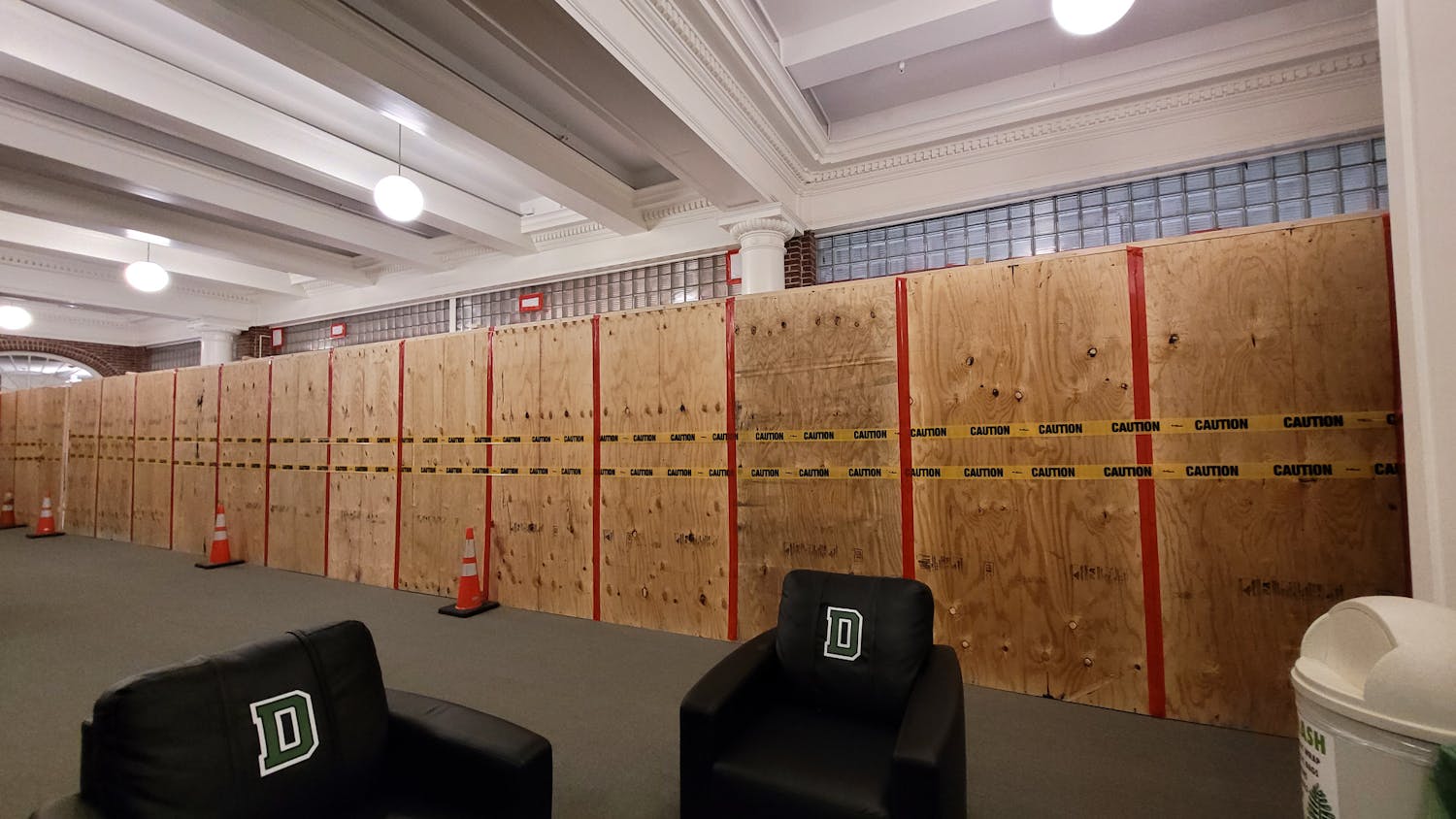As Americans prepare for war with duct tape and sheets of plastic, Dartmouth's study-abroad coordinators are attempting to determine what it means to be afraid while still proceeding with daily routines.
Dartmouth is currently planning on running all Spring term programs and is not terminating any winter programs early, "but it is important to note that this decision could change in the next few minutes, days, weeks or months -- we just have no way of knowing," said John Tansey, executive director of Off-Campus Programs.
On Feb. 14, Tansey and a group of campus deans met to assess the current status of the College's foreign study programs. The purpose of the meeting was to talk about the impending war with Iraq and possibilities of terrorism, to assess current risks and to ensure that the programs are safe, he said.
Tansey and Dean of the Humanities Lenore Grenoble both agreed that because too many variables and unknowns about current world safety exist, blanket decisions cannot yet be made. "There are all different levels of information and danger, and there are all different levels of responses," Grenoble said.
According to Grenoble, program directors rely on the State Department for much of their information.
"As soon as the Department says get out of a place, we'll get out," she said. "It's a no-brainer."
Now however, Grenoble said she thinks the best response is to play it by ear -- to be constantly monitoring the situation and to remain in regular contact with program directors currently abroad.
The Off-Campus Programs office maintains a database of contact information for every student on a Winter term program. The database is constantly being updated with information about the students' whereabouts.
At the end of last week, Tansey sent a request to each of the overseas faculty directors asking them to review general safety and security recommendations with their students.
"With world tensions heightened due to the possibility of war, and with an increased alert level in the U.S., we decided the time was right for a reminder. These are very similar to advice given by the State Department to U.S. travelers abroad," Tansey said.
Students have been told to verify that their passports are secure and up to date, to carry emergency contact numbers with them at all times, to remain abreast of local and world news and to report any suspicious people or events promptly to local authorities.
They are also instructed to conduct themselves with general common sense and caution -- maintain a low profile, refrain from speaking English in public, avoid large gatherings, always remain aware of their surroundings and let people know where they are going at all times.
Caroline Lessing '05, currently on a foreign study program in Paris, said that authorities are locking school buildings in Paris five hours earlier to prevent the school from becoming an easy terrorist target.
While Tansey was cautious, he also noted, "Most people overseas make the distinction between United States foreign policy and the average American on the street." He and Grenoble advocated student interactions with foreigners.
Students currently on foreign study programs in Western Europe reported that there is a general tolerance -- if not liking -- for Americans. There is, however, a predominant hatred of President George W. Bush.
"When people hear you are American, one of the first questions they ask you is whether or not you like Bush. That is when you just say no regardless and leave them -- because if you say yes, it could get ugly," Lessing said.
Professor Angelia Means directed the Fall term Government Department FSP in London and reports that the current situation in London is similar to that in Paris.
To her knowledge, she said, no student had a problem with anti-Americanism, although the general atmosphere in London is critical of American foreign policy.
"The students on foreign studies here either live alone or with a general population of 'tolerant' foreign students. The students in the program I directed lived with foreign students and studied at the LSE [London School of Economics], a very cosmopolitan university. They reported no specific problems, with their housemates or schoolmates," she said.
At this stage in the term, Tansey said he is receiving two to three calls a day from parents concerned about sending their children abroad.
Students remain divided in their reactions to the possibility of encountering danger.
Ronald Edsforth, historian and professor of war and peace studies, observed that while some students are concerned, others are unfazed and believe themselves invincible.
"Students should not be nave about the way the United States appears in the eyes of many people around the world. Whatever military action we take in the next few months will reflect negatively upon us," Edforth said.
Students face the greatest dangers in Arab nations and other countries in or near the Middle East. Many American schools in the Middle East have already closed or announced that they will be closing in the spring.
There is also a strong anti-American sentiment in Greece and in countries with large Muslim populations, such as France, Germany and elsewhere in western Europe.
"There are two possibilities for violence overseas -- one is planned, the other is more spontaneous acts of violence," Edsforth said.
Students can avoid spontaneous acts by avoiding large gatherings and remaining low profile. They are safer in smaller towns and in the countryside than in big cities, he added.
Dartmouth has a history of following through with its foreign study programs in the wake of global disorder. During the Gulf War, programs were not cancelled until the spring of 1991.
After the Sept. 11, 2001 terrorist attacks, every program was delayed at first but in the end only the Russian Foreign Study Program was cancelled and the Spanish program in Buenos Aires was moved to Montevideo, Uruguay. Both changes were results of non-terrorism related, local concerns.
And even if Dartmouth does decide against ending a program, students are free to make individual decisions.
Last spring, five Dartmouth students returned home early from an FSP in Florence after the State Department warned that the city was a potential terrorist target.



